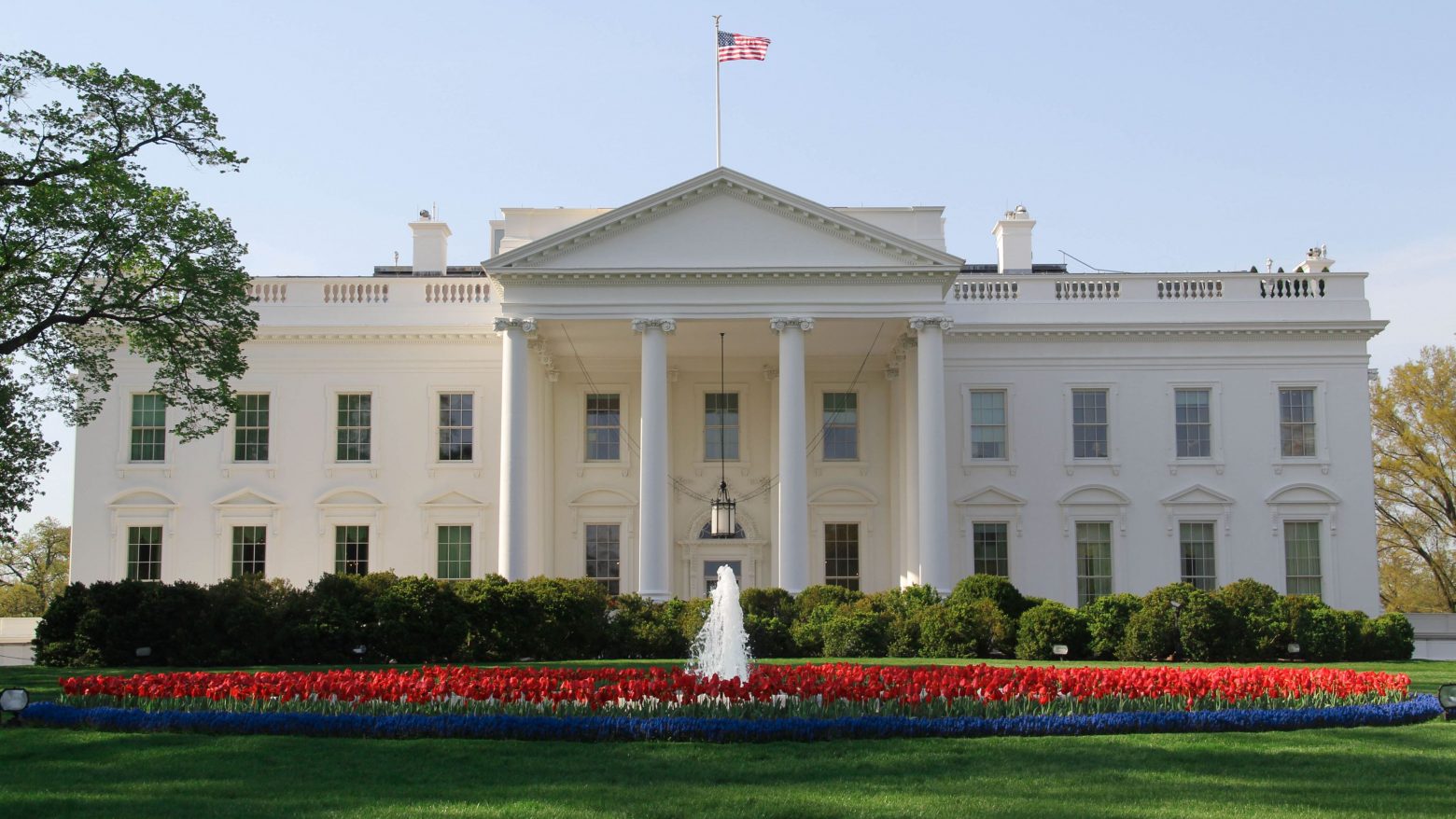
Mitsotakis-Biden talks: Greek-Turkish relations, the war in Ukraine, wayward Turkey’s new role in NATO
The talks come amid heightened Greek-Turkish tensions in the Aegean, with an exponential increase in violations of Greek national airspace, and Ankara's return to the fold.
By George Gilson
Had the scheduled talks between Prime Minister Kyriakos Mitsotakis and President Joe Biden at the White House today occurred before the 24 February Russian invasion of Ukraine, the political context as far as Greece-Turkey relations, which has topped the agenda at meetings between Greek and American leaders for decades, the terrain would have been quite different, or at least less complex.
Ankara’s years of efforts to build exceptionally close ties with Moscow, strongly facilitated by Donald Trump’s relations with Russian President Vladimir Putin and Turkish President Recep Tayyip Erdogan’s extremely close relationship with Putin, had pushed Washington’s relations with Ankara to a nadir.
The Putin-Erdogan relationship was fuelled by the strong elective affinities between the two authoritarian, neo-imperialist, revisionist leaders, and culminated in a close military cooperation with a $2.5bn deal in 2017 for the procurement of Russian S-400 missile systems, stirring intense consternation in Washington and drawing the ire of the departments of defence and state and of Congress, which has long been fuming. Erdogan eventually went as far as to respond to extreme pressures with threats to buy even more.
The unprecedented procurement by a NATO member-state of one of Russia’s most advanced weapons systems resoundingly violated a strong taboo in place since the founding of the Alliance and was treated as a fundamental threat to NATO, but Erdogan steadfastly thumbed his nose at intense US remonstrances and tough sanctions.
Turkey has no real friends in Washington, but it does have bitter opponents, the most prominent of which is the Chairman of the Senate Committee of Foreign Relations, Robert Menendez, who has staunchly supported the strategic Greece-Cyprus-Israel defence cooperation, which will be central to tomorrow’s talks, as will energy cooperation, made even more pressing and urgent by the ongoing Russo-Ukrainian war.
One early indication of the great durability of the Russo-Turkish relationship was that it survived and thrived after a Turkish Air Force F-16 fighter jet in November, 2015, shot down a Russian Sukhoi Su-24M warplane at the Turkey-Syria border when it entered Turkish airspace for 17 seconds (according to the Turkish account, which Moscow denied), an event that in previous years would almost certainly have triggered a major diplomatic even military crisis.
In the last three years, Erdogan’s stubborn and persistent refusal to give up the S-400s set in motion a series of tough US sanctions. In a strong slap from Washington, Turkey in April, 2021, was kicked out the fifth generation F-35 warplanes co-production programme (Turkish suppliers produced dozens of parts of the engine), in which it had already invested 1.4bn dollars.
The war that changes (almost) everything
When Prime Minister Mitsotakis steps into the Oval Office tomorrow he will have to navigate and find a common roadmap with the US president regarding the future of the extraordinarily complex nexus of Greece-Turkey-US relations, which has been fundamentally altered by the Biden administration’s strategy in the Russia-Ukraine war.
With little consultation with its allies, Washington has set as its goal the overall weakening of the Russian armed forces, as Defence Secretary Lloyd Austin explicitly stated in Ukraine recently.
Erdogan has exploited with more than a touch of cunning the excruciating dilemma that confronts all of America’s NATO and European partners more broadly, seeking to exact as Turkish diplomacy has always done (with the centuries-old legacy of the Sublime Porte) the greatest possible returns for making what is essentially an ineluctable choice, being weened off of its tight embrace with Russia and balancing relations between two countries with which it has long maintained very close relations – Russia and Ukraine.
Now, he is essentially blackmailing NATO, in which decisions require unanimity, with rejection of the applications of Sweden and Finland to join the Alliance. This can be interpreted both as both an effort to maintain bonds with his ally Putin and as a bid to pressure Washington to lift what is essentially an arms embargo on Turkey, a stunt that is most likely to boomerang and enrage Washington.
Greece’s private Mega television today reported that Erdogan has, amazingly, told the two applicant countries’ governments that his consent is contingent upon their extradition of a combined total of 33 Turkish nationals (who have been granted international protection by their courts) whom Ankara views as either members of the PKK or of the movement of Fetullah Gulen, Erdogan’s arch-enemy, whom he blames for the 2016 abortive coup against him. Turkish courts have convicted countless political opponents of Erdogan on the grounds that they are allegedly «Gulenists».
In a world that the US president has framed as an arena in which good is in an existential battle with evil – which is to say democracy versus revisionist, expansionist authoritarianism – Turkey’s choice is clear, but it will not come without quid pro quos, and that is what raises increasing concerns in Athens that US concessions may touch upon Greek vital interests, most notably in the Eastern Mediterranean, with its huge hydrocarbons deposits.
Sort it out at the negotiating table
Though Washington certainly does not accept Turkey’s pretence of being the predominant power in the Eastern Mediterranean, and has over the last years duly noted Ankara’s major provocations against Greece and Turkey’s sweeping challenges to Athens’ Exclusive Economic Zone in the region (the two countries came to the brink of a full-fledged military clash in July, 2020, defused with EU and NATO intervention), its basic line is unswerving – that the two neighbours and fellow NATO allies must sit alone at the negotiating table and sort things out, with a delimitation of their EEZs, culminating in a deal that may not align precisely with the UN’s 1982 Law of the Sea Convention, to which Turkey is not a signatory.
Mitsotakis’ strong cards, Turkish provocations
For his part, Mitsotakis is theoretically and in fact in a position of substantial advantage.
The US and Greece have over quite some time often publicly declared that their relations are at an unprecedentedly good level, a conviction predicated upon and completely borne out by the Greek Parliament’s ratification this week of the amended, bilateral Mutual Defence Cooperation Agreement, which greatly expands the US military presence in Greece, including an upgrade of the globally crucial Souda Bay, Crete, naval and air base, and the establishment of a base in the strategic port city of Thrace Alexandroupolis, the capital of the Evros border region, that has drawn the ire of Turkey, not only due to its relative geographical proximity.
For decades, Ankara has successfully worked to increase its strong influence over the Muslim minority of Western Thrace, with efforts to Turkify the ethnically Pomak and Roma elements of the minority, of which the majority is of ethnic Turkish origin. Some analysts fear that an increasingly revisionist world might lead the supremely revisionist Erdogan to push for some type of autonomy for the Muslim minority (as the 1923 Lausanne Treaty recognises it, though Ankara has always called it Turkish).
Heightened Aegean, Mediterranean tensions backdrop of talks
The Biden-Mitsotakis talks come at a time of heightened Greek-Turkish tensions in the Aegean. There has been an exponential, quantitatively and qualitatively, rise in violations of Greek national airspace since the beginning of the year, with a peak in late April – with over 150 violations over two days including flights over large inhabited islands such as Rhodes, Samos, and Kalymnos, among others.
That led Athens to respond by suspending bilateral talks on military confidence-building measures (decided during a cordial meeting between Mitsotakis and Erdogan οn 13 March in Istanbul) a move that came straight on the heels of Greek foreign ministry general secretary Themistoklis Demiris twice summoning the Turkish ambassador to the ministry to hand him two strongly- worded, consecutive demarches underlining that the violations trample over international law, endanger civil aviation, and undermine efforts at rapprochement.
Over the last year, Turkey has constantly and vociferously demanded that Greece demilitarise its Aegean islands, under the terms of the 1923 Lausanne Agreement, while Athens underlines Turkey’s longstanding official threat of war against Greece, its right to defend itself against Ankara’s huge Aegean Army (with NATO’s largest landing force, situated on the coast of Anatolia a stone’s throw away from the islands) and Turkey’s 47-year occupation of the Republic of Cyprus, since 2004 an EU member state.
Turkey’s anger, and the accompanying scathing criticism of Greece in the country’s largely controlled media, was spurred mainly by a 2.3bn euro Greece-France military procurement deal and strategic defence cooperation agreement signed in September, 2021.
The two countries already had signed a deal to for Greece to acquire 18 French Rafale fighter jets (12 used, six of which were delivered in January) and on 24 March finally signed the deal for the procurement of three Belharra frigates, that hugely bolster the Hellenic Navy’s capabilities with the most advanced technology, as its current ones are decades old.
The bilateral strategic defence cooperation agreement includes a mutual defence pact requiring each of the parties to intervene if the territorial integrity of the other is threatened by a third country (obviously Turkey), though it is at least highly uncertain that this includes the critical hot spot, Greece’s EEZ in the Eastern Mediterranean.
Greek F-35 deal, F-16s to Ankara, Turkey sole NATO member with no sanctions against Russia
Though the procurement deal with France clearly did not thrill Washington, as evidenced by the fact that at the time of the signing it claimed it was not aware of details, Athens in November, 2021 decided to apply and jump on board the Lockheed Martin F-35 Lightning II Joint Strike Fighter (JSF) jets programme, from which Turkey was removed, a process that is moving forward, as Jane’s reported in February.
“Greece will be part of the F-35 programme. I think that’s clearly understood by the government, by the Hellenic Air Force, but also by the US government. You’ve heard expressions to that effect not just from me but from senior officials of the State Department,” the report in the defence industry bible quoted then US Ambassador to Athens Geoffrey Pyatt as saying.
Ensuring progress on that deal will no doubt be high on the agenda of both sides in Washington as will the reported intention of the US to sell Turkey a large batch of F-16s, a prospect that emerged after the Russian invasion of Ukraine and Ankara’s efforts to project the image of a well-behaved partner returning in earnest to the NATO fold and of a peacemaker, hosting two, alas ultimately fruitless, rounds of Russia-Ukraine talks, one in Istanbul and another in Antalya.
Mitsotakis and main opposition SYRIZA leader Alexis Tsipras last week clashed in Parliament over reports of the sale F-16s sale, with the PM declaring it to be “a lie”.
Tsipras, who said he will dismiss the reports only if President Biden publicly denies them, has repeatedly underlined that Turkey is the sole member of the Alliance that steadfastly refuses, with no repercussions, to enforce any sanctions against Russia. Its only move was to close the Bosphorus and Dardanelles to all warships on 28 February, four days after Russia invaded Ukraine.
Mitsotakis is certain to make clear his government’s concerns over the US bolstering a long wayward NATO ally that has greatly escalated its concrete military threats against Greece, both in the Aegean and the Mediterranean.
On May 7, Turkey’s Hurriyet Daily News reported that unnamed US lawmakers see a prospect of Turkey making a six billion dollar purchase of 40 Block 70 F-16 fighter jets and approximately 80 modernisation kits to upgrade its existing fleet.
Mitsotakis first Greek PM to address joint session of US Congress
At the invitation of US House Speaker Nancy Pelosi, Kyriakos Mitsotakis will be the first Greek Prime Minister to address a joint session of the US Congress, in which Greece enjoys strong support and Turkey is still viewed with well-grounded suspicions, a singular honour that his government has understandably touted, noting that Erdogan, despite persistent and strenuous efforts, has yet to be received by the US president at the White House.
In his address, the Greek prime minister is certain to underline that US-Greece ties are the closest and best ever, that Greece’s crucial geostrategic position makes it a pillar of stability in a very troubled region, that Athens seeks good neighbourly relations and talks with Turkey but only on the basis of international law and never in the shadow of gunboat diplomacy, that the Greece-Cyprus-Israel strategic military alliance contributed greatly to regional stability, and that Greece has firmly positioned itself on “the right side of history”, as he is wont to say, by offering palpable support to Ukraine, with military and humanitarian aid, as it fends of Russia’s unprovoked and barbaric invasion, which has already produced a long list of war crimes that fall under the jurisdiction of the International Criminal Court.
Ακολουθήστε το in.gr στο Google News και μάθετε πρώτοι όλες τις ειδήσεις

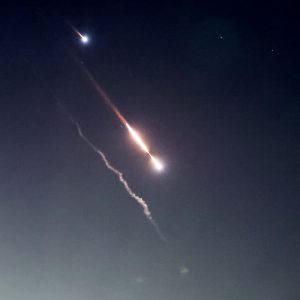








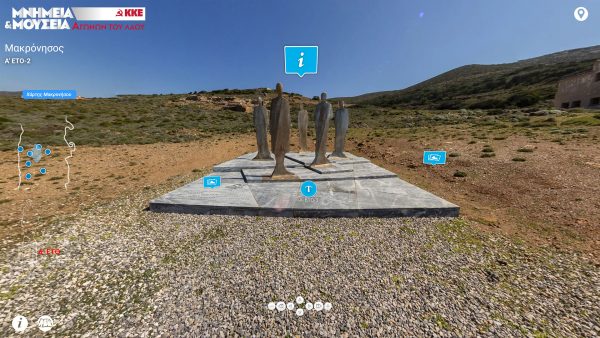





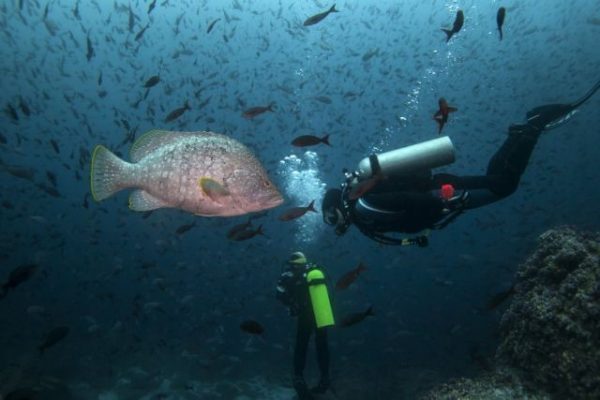




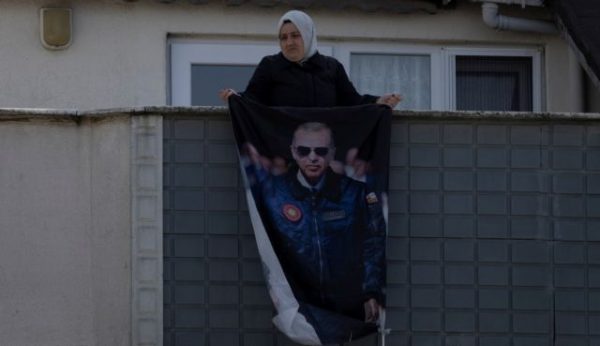



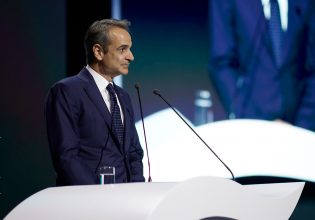


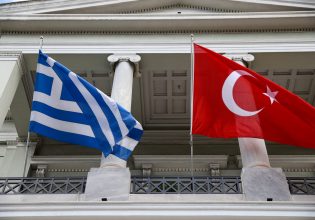


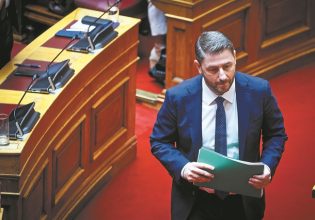



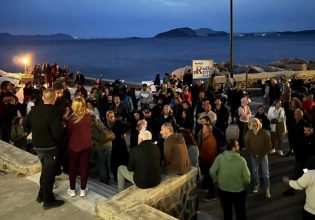




 Αριθμός Πιστοποίησης Μ.Η.Τ.232442
Αριθμός Πιστοποίησης Μ.Η.Τ.232442